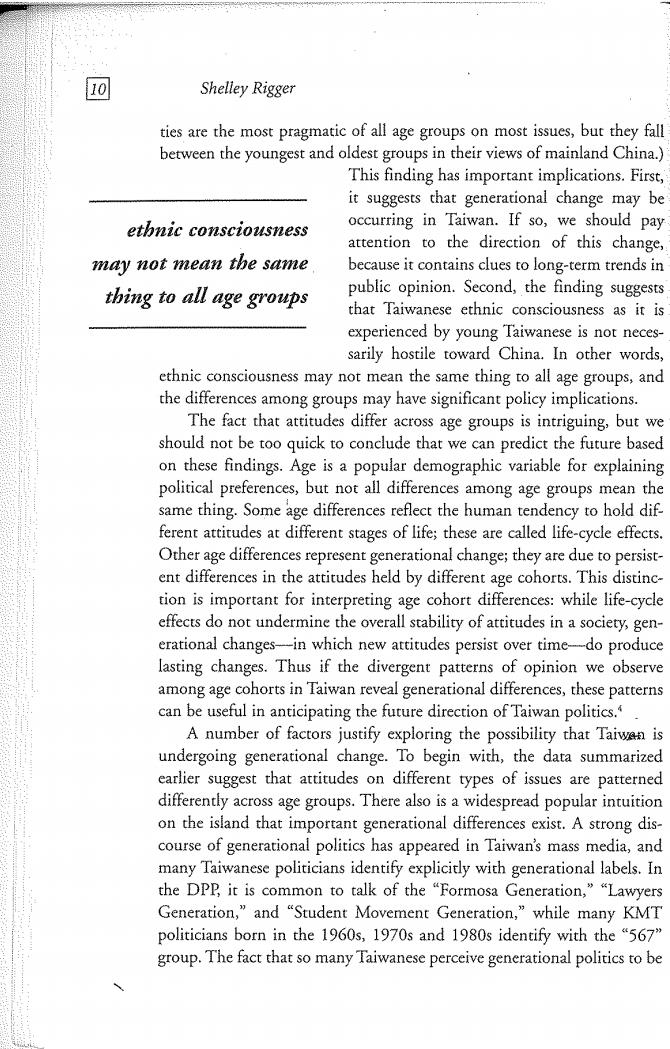正在加载图片...

0 Shelley Rigger ties are the most pragmatic of all age groups on most issues,but they fall between the youngest and oldest groups in their views of mainland China.) This finding has important implications.First, it suggests that generational change may be ethnic consciousness occurring in Taiwan.If so,we should pay attention to the direction of this change, may not mean the same because it contains clues to long-term trends in thing to all age groups public opinion.Second,the finding suggests that Taiwanese ethnic consciousness as it is experienced by young Taiwanese is not neces- sarily hostile toward China.In other words, ethnic consciousness may not mean the same thing to all age groups,and the differences among groups may have significant policy implications. The fact that attitudes differ across age groups is intriguing,but we should not be too quick to conclude that we can predict the future based on these findings.Age is a popular demographic variable for explaining political preferences,but not all differences among age groups mean the same thing.Some age differences reflect the human tendency to hold dif ferent attitudes at different stages of life;these are called life-cycle effects. Other age differences represent generational change;they are due to persist- ent differences in the attitudes held by different age cohorts.This distinc- tion is important for interpreting age cohort differences:while life-cycle effects do not undermine the overall stability of attitudes in a society,gen- erational changes-in which new attitudes persist over time-do produce lasting changes.Thus if the divergent patterns of opinion we observe among age cohorts in Taiwan reveal generational differences,these patterns can be useful in anticipating the future direction of Taiwan politics. A number of factors justify exploring the possibility that Taiwan is undergoing generational change.To begin with,the data summarized earlier suggest that attitudes on different types of issues are patterned differently across age groups.There also is a widespread popular intuition on the island that important generational differences exist.A strong dis- course of generational politics has appeared in Taiwan's mass media,and many Taiwanese politicians identify explicitly with generational labels.In the DPP,it is common to talk of the“Formosa Generation,”“Lawyers Generation,”and“Student Movement Generation,”while many KMT politicians born in the 1960s,1970s and 1980s identify with the"567" group.The fact that so many Taiwanese perceive generational politics to be